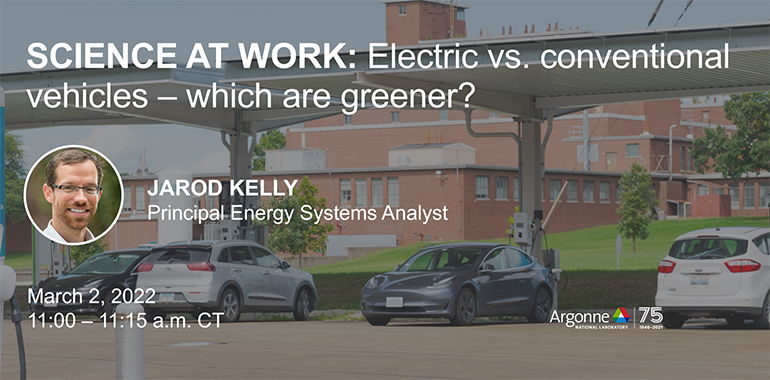by Argonne National Laboratory

Join Argonne experts as they explore the best ways to measure greenhouse gas emissions
Wednesday, March 2, 2022, 12:00 PM – 12:15 PM EST
Are electric vehicles (EVs) really better for the environment than conventional ones? With 30 EV models to be introduced this year, many are asking this same question.
EVs tend to generate fewer greenhouse gas emissions than conventional vehicles. But the details matter: How is the electricity for EVs produced? With coal, natural gas or hydropower? And what materials are powering the EVs’ batteries?
In this webinar, Jarod Kelly, principal energy systems analyst, will discuss the environmental trade-offs in owning an EV vs. a conventional vehicle. He will also show how Argonne’s free tool – the Greenhouse Gases, Regulated Emissions and Energy Use in Technologies (GREET) model – can track how nearly any vehicle, fuel or material affects our environment. Beyond transportation, Kelly and his colleagues use the GREET model to better understand plastics, farming methods and crops and building materials via their greenhouse gas and other emissions.
Join Kelly and moderator John Harvey, business development executive at Argonne, as they explore how the lab’s way of measuring greenhouse gas emissions is guiding more than 48,000 users, including policymakers, worldwide.
Register free here





Tell Us What You Think!